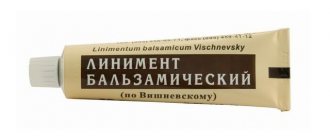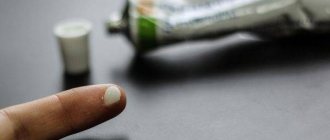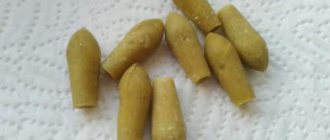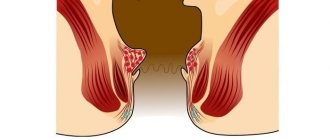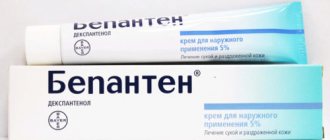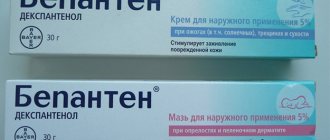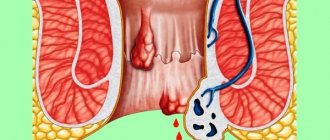Ointment for hemorrhoids during pregnancy quite often becomes a necessity. Pregnancy is not only a happy time when a woman carries a child under her heart. Often a problem such as hemorrhoids spoils this wonderful period and causes the expectant mother a lot of trouble. According to statistics, more than half of pregnant women experience this disease, and in 8 out of 10 women it remains after childbirth.
Today there is a huge selection of drugs intended for local treatment. The drugs are available in the form of ointments, creams and suppositories. The local action of these medications is aimed at eliminating the risk of side effects. They increase the effectiveness of therapy and reduce the negative impact of treatment on the child. These drugs provide excellent and quick pain relief, relieve inflammation and swelling, normalize blood flow in the rectum, counteracting the formation of blood clots in the vessels. In addition, they help soften stool, making the process of defecation as comfortable as possible.
Why does the disease occur and why should it be treated?
Why do hemorrhoids occur so often during pregnancy? The reason lies in the characteristics of the woman’s body, which undergoes a slight restructuring during pregnancy. The pelvic bones rotate slightly, and blood flow increases in the pelvic organs, where the rectum is located.
The main factors for the appearance of hemorrhoids:
- constipation;
- disruption of blood outflow and stretching of the walls of blood vessels in the pelvic area;
- lifestyle changes (decreased mobility).
Throughout pregnancy, women often experience constipation. This is due to changes in the position of the pelvic organs. The process is not a deviation and is caused by the body’s protective reaction against premature birth.
Disruption of blood outflow, leading to blood stagnation, and stretching of the walls of blood vessels in the pelvic area is caused by the uterus, which increases in size as the fetus grows. Because of this, pressure increases and blood circulation is disrupted.
Often the development of hemorrhoids is influenced by changes in the usual lifestyle. New taste preferences and decreased motor activity lead to decreased muscle tone in the rectum, which in turn leads to constipation.
Application of ointments
The advantage of the method is its gentle effect on the affected area and rapid healing. A number of advantages of this method of treating such a delicate problem make ointments convenient for getting rid of both external and internal hemorrhoids. The only drawback is that they have stains on their underwear. If external hemorrhoids are simply lubricated with a product, then to treat internal hemorrhoids you need to use a tampon treated with ointment or a special applicator.
Ointment for hemorrhoids during pregnancy
Features of treating hemorrhoids with ointment
Pregnant women are not always able to change any of the listed factors that influence the onset of the disease. It should be borne in mind that not all medications are suitable for solving this delicate problem. Most components of traditional medicines are able to penetrate into the blood, crossing the placenta and thereby harming the child.
It is believed that the safest way to treat illness during pregnancy is with ointments. In pharmacies you can buy drugs that are approved for pregnant and lactating women. Although they are available, it is not recommended to take them on your own.
The drug should always be selected by a specialist. This is especially true for the treatment of stages 2 and 3 of the disease. Otherwise, the likelihood that a woman will use an ineffective remedy will be quite high. And treatment can take a long time. And during pregnancy, it is extremely important to cure hemorrhoids quickly. One should take into account the fact that grades 2 and 3 hemorrhoids require complex therapy and treatment with ointments alone is not allowed.
Without a doctor's prescription, pregnant women should not use any medications for hemorrhoids (ointments, gels). It is also not recommended to advise pregnant women on a specific drug based only on personal experience. We can only recommend those products that contain sea buckthorn oil. It almost never causes side effects and shows excellent results. Based on this natural component, not only ointments are made, but also candles. This product is good because it does not pose a danger to the woman and her unborn baby. The only exception is individual intolerance to this substance.
Only by doctor's prescription
Treatment of hemorrhoids during pregnancy, when the disease is in the first stage, is carried out without the use of medications, but the problem is that many patients do not consult a doctor in a timely manner when faced with the first signs of this disease. The emphasis in the fight against the disease is on getting rid of constipation and hygiene of the anus.
In combination with long walks in the fresh air and physical therapy exercises aimed at raising the tone of the muscles of the abdominal wall and anal area, they can stop the disease. If a pregnant woman is diagnosed with the disease at the second stage, she will have to take medicine for hemorrhoids. Medicines for external use should have anti-inflammatory, laxative, vasoconstrictor and analgesic effects. It is important to know: a pregnant woman cannot use any remedy on her own, even the most harmless one! Any ointment, gel, compress can be used only as prescribed by the attending physician.
Rectal suppositories, which are allowed to be used during pregnancy, are made on the basis of cocoa butter and analgesic components:
- novocaine;
- anesthesin;
- benzocaine.
To reduce discomfort, itching and burning, glucocorticoid hormones are added to ointments applied topically.
The use of these funds helps to significantly alleviate a woman’s condition, but in some cases their use is strictly prohibited. External agents with glucocorticoid hormones are not used in the treatment of pregnant women if hemorrhoids occur against the background of fungal, viral, or various infectious lesions of the rectum.
There is a significant difference between the procedures for using rectal suppositories and ointments, not only in the method of administration and application of the drug. Suppositories are inserted into the rectum after defecation, ointments are applied to the area of the body around the anus after a hygienic shower. Procedures with rectal suppositories can be performed once a day; their daily use in the evening, before bedtime, is considered the most effective. Different ointments are not mixed with each other during the procedure for treating a skin area. External agents are applied 3-4 times a day, spreading evenly in a thin layer over the skin around the anus. External hemorrhoids are also lubricated with ointments.
Effective ointments for hemorrhoids
Currently, Hepatrombin G ointment is successfully used in the treatment of hemorrhoids. It fights node thrombosis, reduces swelling, eliminates pain and itching.
Another remedy that is widely used in treatment is heparin ointment. It contains heparin, a substance that reduces inflammation and accelerates the resorption of nodes. It is indicated for pregnant women at the earliest stages of the disease.
During pregnancy, Relief ointment is often prescribed. It is suitable for treating the external form of the disease. For internal purposes, it is advisable to use candles. These products are approved for use by pregnant and nursing mothers. The drug contains shark liver oil, which has anti-inflammatory and healing properties. Different forms of the drug "Relief" can be combined with each other, thereby increasing its effectiveness. The cream perfectly relieves swelling, constricts blood vessels, eliminating inflammation. How do Relief Ultra candles differ from regular Relief candles? In the first case, the drug contains additional substances: zinc and a hormonal component of local action. Such suppositories dry out the hemorrhoid, eliminate bleeding and inflammation. “Relief” can be used as a disease prevention, as it helps soften stool and prevent constipation.
"Proctosan." This drug can be purchased in the form of ointments and suppositories. It has a strong analgesic effect due to the presence of lidocaine. Hemorrhoid ointment for pregnant women relieves discomfort (itching, burning). The medicine contains a non-steroidal component that quickly relieves swelling and inflammation. After its use, cracks and wounds heal quickly enough, and bleeding stops.
"Proctosan" can be used at any stage of the disease. The form of the drug is chosen based on the symptoms: suppositories are suitable for the treatment of chronic hemorrhoids, and cream is suitable for acute manifestations. The advantage of Proctosan is that it is quite effective even in the absence of complex therapy.
Anti-inflammatory and antibacterial
Anti-inflammatory and antibacterial ointments for hemorrhoids are also prescribed for pregnant women.
Funds from this group:
- eliminate swelling;
- prevent the development of the inflammatory process;
- kill harmful microorganisms that can infect damaged areas of the anorectal area.
Medicines are prescribed to pregnant women for prolapsed hemorrhoids and severe inflammatory processes.
Ichthyol
For hemorrhoids you can use Ichthyol ointment. Antiseptic and disinfectant eliminates itching, promotes regeneration of rectal tissue, eliminates peeling, and has a keratostatic effect.
The medicine is applied to the hemorrhoids with massage movements or inserted into the rectum on a tampon. For a tampon you will need 15 g of ointment (1 level teaspoon). After application, apply a sterile bandage and secure it with adhesive tape.
Ichthyol ointment against hemorrhoids is used for 10–20 days, the course of treatment is repeated if necessary.
The medication is prescribed at any stage of pregnancy. It is recommended to use Ichthyol ointment for cracks, external hemorrhoids and ulcers in the rectum.
The drug is contraindicated for use in case of hypersensitivity to the components.
Possible side effects:
- rash;
- hives;
- skin redness;
- burning;
- itching
If adverse reactions occur, remove any remaining medication from the skin and rinse with warm water. Further use of the product is impossible.
The medicine is sold without a prescription and must be stored in a place inaccessible to small children.
Heparin
Hemorrhoids during pregnancy are treated with Heparin ointment. Prescribed for inflammatory processes, enlarged external lumps, and the threat of thrombosis.
Table. Composition of Heparin ointment and its effect.
| Active components | Action |
| Benzocaine | Helps reduce capillary permeability and blocks the conduction of nerve impulses. The effect of the substance occurs within 1 minute after external use and lasts 15–20 minutes. |
| Heparin sodium | Relieves inflammation, prevents the formation of blood clots, resolves blood clots. |
| Benzonicotinic acid | Promotes the expansion of superficial vessels, helps heparin to be better absorbed. |
Heparin ointment, like any antihemorrhoidal drug, has contraindications for use.
It is prohibited to use the medicine if you have:
- poor blood clotting;
- rectal fissures;
- severe pregnancy with repeated risk of spontaneous abortion;
- erosive damage to the anus.
After use, allergic reactions and skin hyperemia are possible.
Heparin ointment is rubbed into the skin carefully. Apply the medicine to hemorrhoids in a thin layer 2-3 times a day.
The duration of treatment is 3–7 days. If the patient has thrombosis of external hemorrhoids, therapy is extended to 2 weeks. In this case, the medicine is used as a lotion.
The medicine is applied to a calico or linen pad, applied to the nodes and fixed. The product must be used daily, or in the form of a tampon.
Vishnevsky
The composition of balsamic liniment includes xeroform, castor oil and birch tar. The drug helps against many skin diseases, thanks to the combination of such active ingredients.
Table. Composition of the Vishnevsky liniment. Action of the medication.
| Active components | Action |
| Xeroform | It has astringent, antiseptic and drying properties. The substance binds to the proteins of the cell membranes of microorganisms, exerting a bactericidal effect on them. Xeroform constricts blood vessels, dries wounds, reduces exudation, and reduces sensitivity. |
| Castor oil | Provides tissue warming and relieves inflammation. Eliminates pain, as well as itching and swelling. Under the influence of castor oil, blood circulation improves, due to which hemorrhoids decrease in size. This substance also accelerates regeneration processes. |
| Birch tar | Performs preservative properties, enhances the overall effect of the drug, stimulates blood circulation. The substance inhibits the growth of harmful microorganisms and reduces inflammation. Birch tar reduces pain and itching in the anal area. |
Vishnevsky's liniment is contraindicated for use in cases of hypersensitivity to the components of the drug, a large area of the affected skin surface, purulent inflammation in the rectum, or in the presence of renal failure.
The medication is intended for external use only. The medicine is applied twice a day under a fixed bandage.
Fleming's preparation
The homeopathic remedy is absolutely safe for pregnant women, since it contains only extracts of medicinal plants. Thanks to the natural components of the drug, the risk of side effects is minimized.
Action of Fleming's ointment:
- destroys pathogenic bacteria;
- relieves pain;
- strengthens the walls of blood vessels;
- dries damaged areas.
Homeopathic medicine is prescribed to pregnant women with severe inflammation with the release of venous exudate.
Fleming's medication is contraindicated for use in cases of hypersensitivity to the components of the drug. There are practically no side effects, only an allergic reaction is possible.
The medicine costs 310 rubles.
For hemorrhoids, the drug is applied 1-3 times a day using a cotton swab. The duration of therapy is 1 week. The course of treatment can be repeated, but first you should consult your doctor.
Posterisan
The medicine has strong anti-inflammatory properties.
Posterisan promotes:
- wound healing;
- relieves swelling;
- restores tissue cells in the affected area;
- eliminates itching and burning.
Posterizan contains phenol, which is a strong allergen. For patients with individual intolerance to this component, the use of Posterizan is contraindicated.
The medicine is applied in a thin layer to the hemorrhoid. The procedures are carried out twice a day. Posterizan can be used during pregnancy in the 1st–3rd trimester.
The medicine is also administered into the rectum using an applicator. Before use, you should wash and dry the anus area.
Levomekol
The ointment, intended for external use, has a strong antibacterial effect. Levomekol is prescribed for rectal fissures, external hemorrhoids, erosive lesions, and inflammation of the anus.
The external remedy is contraindicated in case of hypersensitivity to chloramphenicol.
Levomekol can be used during pregnancy, however, you should consult a doctor before using the medication. The medication should be used carefully, because it contains an antibiotic.
Hemorrhoidal nodes are treated with Levomekol several times a day, after hygiene procedures.
Gepatrombin G
The combination of heparin, prednisolone and lauromacrogol 600 helps prevent the formation of blood clots in the veins (thrombi).
The combined drug Hepatrombin G is prescribed to pregnant women for internal lumps, blood clots, itching and burning, and anal fissures.
Action of the drug:
- relieves swelling;
- relieves inflammation;
- reduces cavernous varicose veins;
- helps relieve pain;
- glues blood vessels together.
Gepatrombin G is contraindicated for use in:
- damage to skin and mucous tissues by bacteria, infections or fungi;
- impaired coagulation system with a tendency to bleeding, patients diagnosed with tuberculosis, thrombocytopenia;
- malignant tumors in the anorectal region.
The drug can be used during pregnancy from 4 months. Hepatrombin G is applied to the damaged area 2–4 times a week, the frequency of use of the ointment depends on the severity of the disease.
Laxatives in the treatment of hemorrhoids
In the arsenal of drugs for treating this disease, laxatives occupy a special place. They must be used to facilitate the process of defecation, in particular to reduce straining.
For this purpose, the doctor may prescribe the pregnant woman to take laxatives. This could be Regulax, Duphalac or Prelax. After taking these medications, the stool softens and bowel movements become less difficult. The use of bisacodyl, phenolphthalein, senna and buckthorn is contraindicated for pregnant women, as they can increase the tone of the uterus.
Pregnant women should avoid self-treating hemorrhoids. A large assortment of drugs makes it difficult to choose, and a woman may end up purchasing a product that is not suitable for her. To prevent this from happening, treatment is best carried out under the close supervision of a specialist.
General recommendations for the treatment of hemorrhoids during pregnancy
If preventative measures don't work and hemorrhoids persist, home remedies, natural remedies, or medications can help reduce the intensity of symptoms.
- A warm bath relieves itching and pain caused by hemorrhoids during pregnancy. However, not everyone is helped by heat or cold. Some women find warm baths effective, while others find cold compresses effective. Ice packs can also be helpful and have an anti-inflammatory effect on hemorrhoids,
- It is necessary to carefully and thoroughly rinse the anal area after each bowel movement. Special napkins are best. If you don't have wipes, you can rinse your buttocks with a shower hose instead.
- It is better not to use degreased paper to clean the perineum, as it irritates the skin,
- It is recommended to avoid prolonged sitting or standing. Both processes increase pressure on the pelvic area and lead to severe pain,
- If possible, it is recommended to sleep on the left side to reduce excess pressure on the anus.
- For severe pain, doctors advise using a hemorrhoidal pillow,
- Ointments or suppositories containing horse chestnut, nettle, St. John's wort, yarrow and other plants relieve pain and stop bleeding,
- Baths with oak bark have an astringent effect, so they also help stop heavy bleeding.
Even more effective is a bath filled with a decoction of 120 g of nut leaves, 60 g of comfrey root and 2.25 liters of water. The mixture should be cooked for about 8 hours on the stove, and then sit for a while. The decoction can be used several times a day. According to clinical studies, the above substances effectively relieve the symptoms of hemorrhoids. It is better to take a bath twice a day for 15 minutes each time.
Vitamin E promotes the healing of broken capillaries in hemorrhoids. And vice versa - a deficiency of this vitamin contributes to the development of varicose veins and hemorrhoids. It is found, for example, in sunflower seeds and wheat germ. In some cases, it is recommended to take additional vitamin D (ergocalciferol or cholecalciferol). It is worth noting that homeopathic medicines do not help in the treatment of hemorrhoids.
Ergocalciferol
Important! If you want to use medications to treat hemorrhoids during pregnancy, you must consult your doctor. Some of them can cause irreparable harm to the child.
Advantages and disadvantages of using ointments
Topical medication is a gentle way to treat external cavernous formations. This medicine is easy to use. In addition, the product can be used not only for the treatment of external hemorrhoids. In some cases, it is inserted into the anus. Other advantages of using local therapy:
- this form of medication easily penetrates the skin or mucous membranes;
- many drugs cope with several symptoms at once, including bleeding, pain, swelling, itching;
- active ingredients act directly on the lesion, so the effect appears quickly;
- There are many inexpensive products in this category;
- Unlike suppositories, such drugs are effective against external hemorrhoids.
The downside is the impossibility of using inexpensive local agents as monotherapy. They are part of a comprehensive treatment and make it more effective. In addition, due to the greasy base, unpleasant stains may remain on clothes, although the product is applied in a thin layer. You can use local medications in courses of 10 days, after which you need to take a break. You should be careful with medications that contain hormones.
